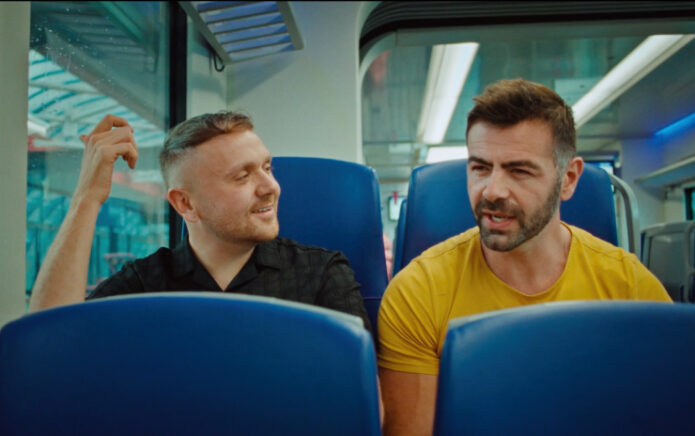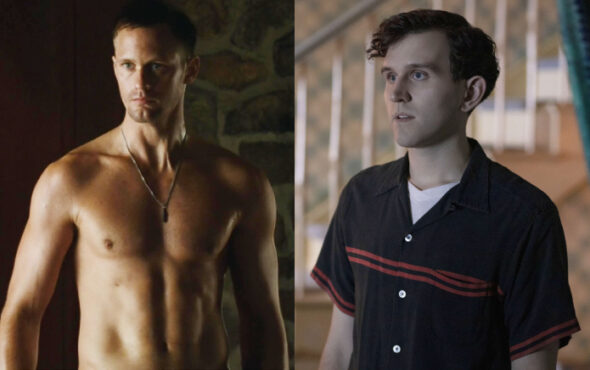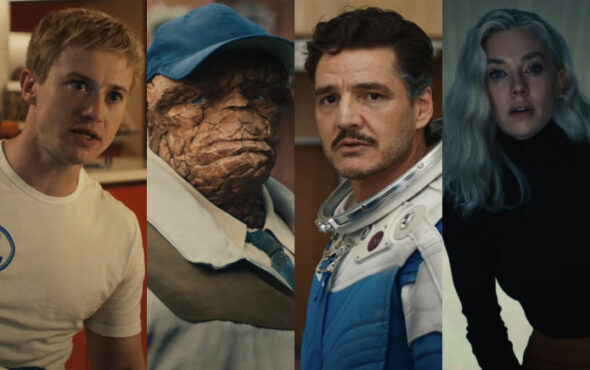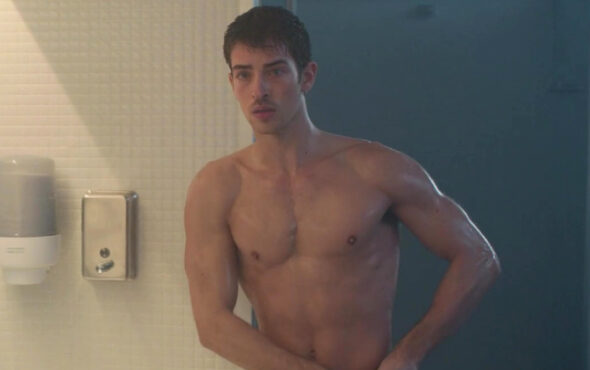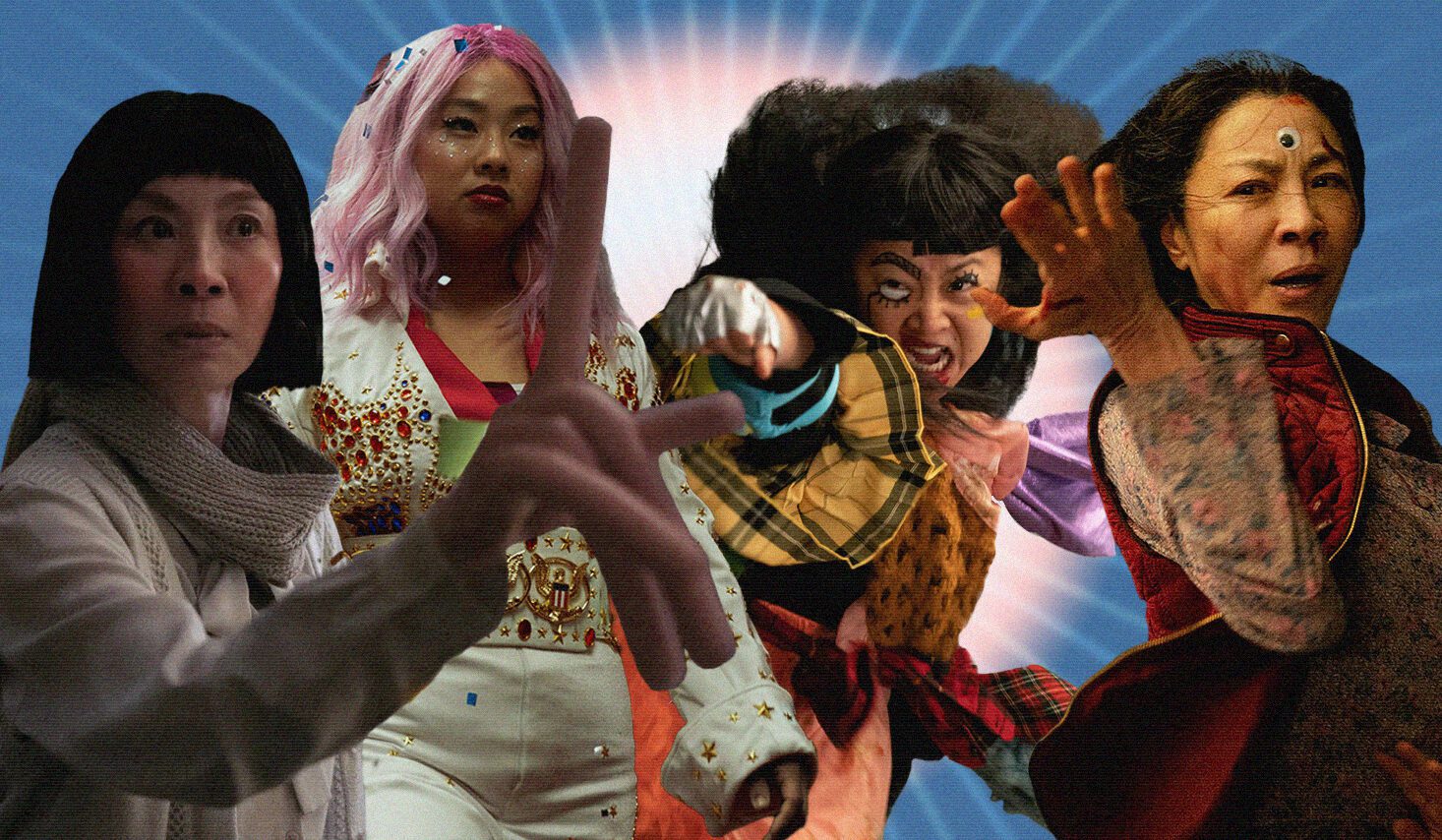
From multiverse dimension jumping, and an ‘everything’ bagel, to cognisant rocks, and butt-plug shaped trophies for tax auditors, to describe the plot of the breakout 2022 film Everything Everywhere All At Once (EEAAO) is a feat in itself.
Written and directed by Daniel Kwan and Daniel Scheinert (collectively known as Daniels), the drama-comedy-sci-fi-martial-arts epic dominated box offices in the summer of 2022 and is continuing its takeover via the 2023 awards circuit. Nominated for 11 Academy Awards, 10 BAFTAs, 13 Critics’ Choice Movie Awards, six Golden Globe Awards, and five SAG Awards, EEAAO has been lauded by critics and audiences alike for its fantastical plot and heartwarming performances of its main cast of Michelle Yeoh, Ke Huy Quan, Jamie Lee Curtis, Stephanie Hsu, and James Hong. If you haven’t seen the film yet, now’s your chance as this is about to get spoiler heavy.
The film follows Evelyn Quan (Yeoh), a Chinese-American immigrant who runs a laundromat with her husband, Waymond Wang (Huy Quan). The film’s chaotic opening sees Evelyn, Waymond and their teenage daughter Joy (Hsu), prepare for the arrival of Evelyn’s father, Gong Gong (Hong), ready the laundromat for a Lunar New Year party, and travel to an IRS audit meeting with intense inspector Deirdre Beaubeirdre (Curtis). While all of this is happening, we also learn Waymond is trying to serve Evelyn divorce papers and Joy is desperately trying to get her mother to approve of her relationship with her non-Chinese girlfriend, Becky (Tallie Medel). I did warn you that a lot happens.
Then, upon the family finally making it to their IRS meeting, Evelyn is contacted by Alpha-Waymond, a Waymond from the Alpha-verse (another universe), who alerts Evelyn to a multiversal catastrophe that threatens her universe and all that link to it. Still with me? Good, because that’s not the half of it. Evelyn must now work with Alpha-Waymond and all of her multiverse selves, through a method of verse-jumping, to defeat Jobu Tupaki, who *spoiler alert* is the Alpha-verse version of Joy. We learn that in the Alpha-verse, Alpha-Evelyn pushed Alpha-Joy to such extensive verse-jumps that she has become an all powerful manipulator of matter. Broken by her mother’s ambitions, Alpha-Joy has created an ‘everything’ bagel, a black hole of sorts, which holds all matter and life on one ringed, breaded surface – but also has the potential to destroy the multiverse.
It’s the seamless queerness in EEAAO that stands out to me as the future of LGBTQ+ storytelling
It’s here where our story begins, as though the Daniels’ multiverse epic seems to be about *everything*, and how life itself no longer matters to the nihilistic Alpha-Joy. Evelyn, along with Waymond who preaches kindness even when life doesn’t make sense, must save Joy from the lie she’s told herself; that nothing matters. One of the ways in which Evelyn does this is by telling Gong Gong of Joy and Becky’s relationship. It’s just one wrong that Yeoh’s character rights, but it’s a fundamental pillar that allows Joy/Jobu to once again recognise the value in life.
To the untrained eye, Joy’s queerness and her relationship with Becky could be seen as any old plot device. But to queer viewers, it’s much more than that. Because to me, it was the most forward thinking and profound representation of the queer experience seen on screen in recent years – maybe ever.
When I saw a preview of the film with GAY TIMES Entertainment Editor Sam Damshenas, we had no idea what to expect – and that was after watching the trailer and listening to a Q&A with the Daniels. There was no indication of anything LGBTQ+, shall we say (not even a cliche campy side character!). So, when Joy appears on screen with Becky, mine and Sam’s eyes met with raised eyebrows in surprise. Evelyn’s reluctance to acknowledge Joy’s queerness, sees her deliberately misgendering Becky as “he” and reminding Joy that she is “very lucky” her mom is “open to you dating a girl”. Wounding Joy with her disapproving attitude, it’s only later in the film, when Evelyn is trying to get through to Jobu/Joy, does she understand how important it is to love Joy for who she is – queerness and all.
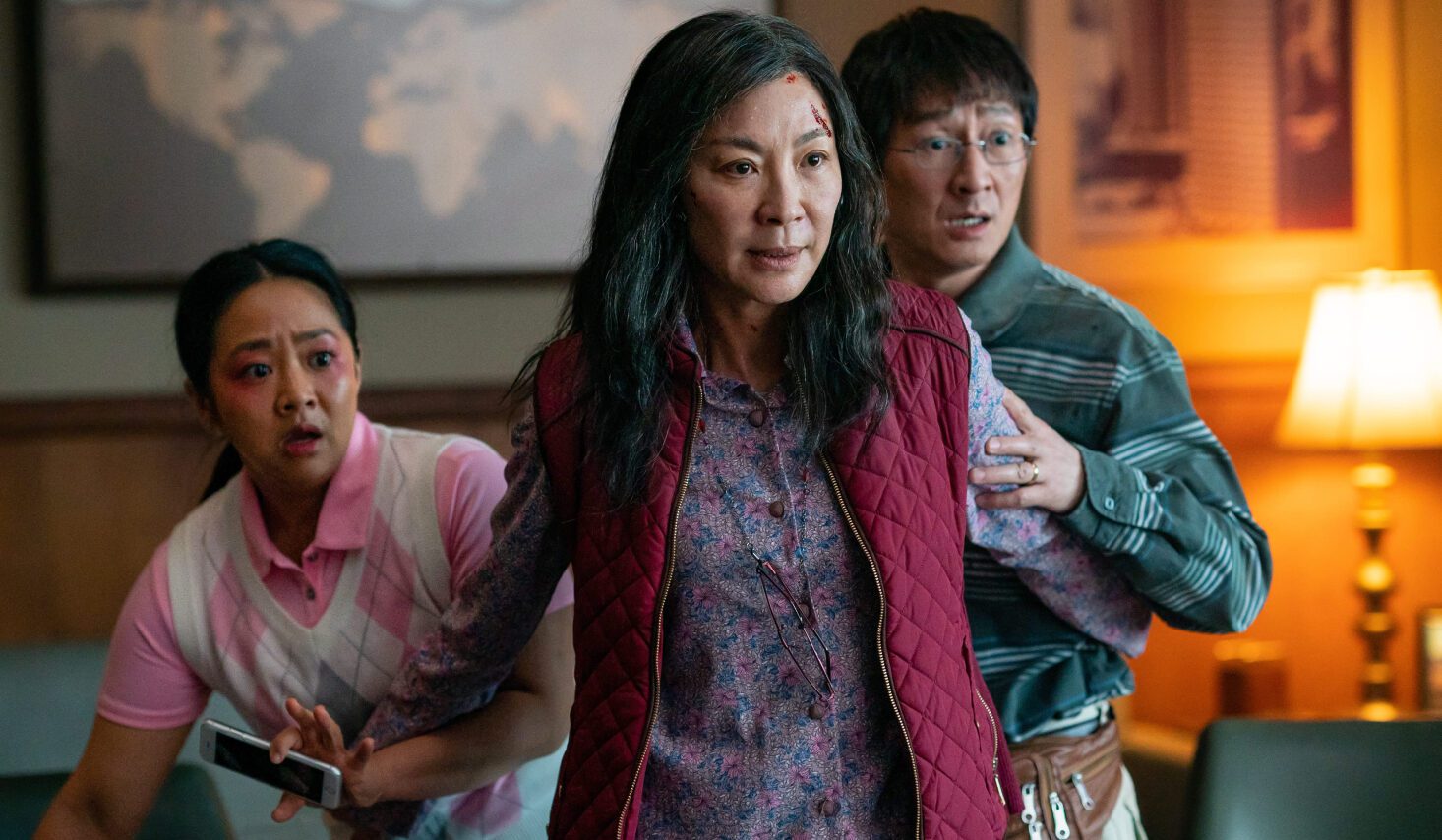
The Daniels actually developed their multiverse story over a decade before it finally reached cinemas. And its queer storyline emerged early on in the writing process after Daniel Kwan spoke to his queer friends who grew up with immigrant parents and discovered that many had actually come out to their families multiple times. “Each time, it’s almost brushed over or ignored, or the parents are waiting for the ‘phase’ to end,” Kwan told USA Today. “There’s no big screaming match. They just end up having to come out every couple years, every time they introduce their partner. They have to basically fight for the chance to be seen – it’s like this slow-motion erasure of who they are.”
Kwan’s understanding of how a person’s queerness intersects with every relationship – and part of – their life is what makes the queer storytelling in EEAAO so powerful. It’s an omnipresence in Joy’s life that impacts all of her multiversal selves. Just like Evelyn’s love for Waymond and Waymond’s capacity for kindness, it’s treated as something embedded into Joy’s very fibre. And yes, as queer people we know that to be true, but to see that represented so fiercely in a mainstream piece of cinema really transcends any other first queer kiss, sapphic yearning, or coming out scene I’ve seen on screen.
And that’s not me pitting one piece of queer cinema against any other – because every bit of representation matters (yes, even the bad kind) and will always help some queer kid somewhere in the world realise that everything will be okay. But it’s the seamless queerness in EEAAO that stands out to me as the future of LGBTQ+ storytelling – one where our identities are wrapped in all the other messy feelings and experiences we have in our lives, but most importantly, one where the non-LGBTQ+s we know and love also understand that.
